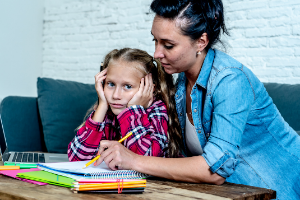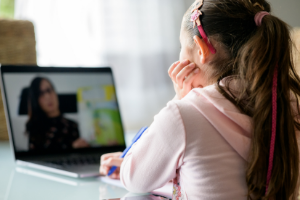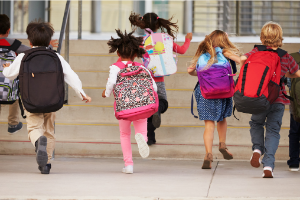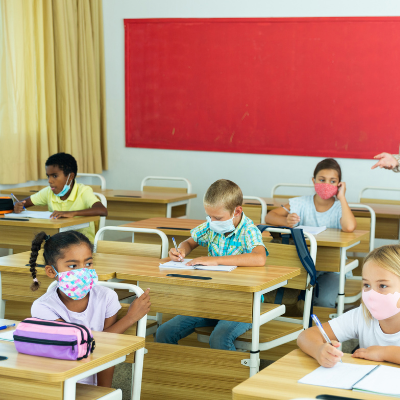Picture this, it is March 2020 and you are at home with your kids trying to figure out how to do long division, let alone explain it to them. Your children are frustrated because you do not know how to do fifth grade math, you are feeling hopeless because maybe your child’s teacher was right, they do need additional help with math. Suddenly, you are overcome with a sense of gratitude for your children’s teachers who are spending a majority of the day with your child who never stops talking.

In March 2020 teachers were finally given the appreciation they deserve for committing themselves to an emotional draining profession full of long hours, high expectations, and constant criticism. When parents were being asked to assist their children in learning from home, teachers were appreciated for the difficulty that they undertake each day in the classroom, and as they simultaneously taught students while transitioning to a completely new platform of learning.
Fast forward to the beginning of the 2020-2021 school year and that appreciation for teachers was quickly dismissed as parents needed to get their children out of the house so that they can do their own work and possibly have a peaceful moment to themselves. Everyone has an opinion on children returning back to school. Specifically, elementary aged children.

Should students return to school in person? Should students continue in distance learning? Is there a model that combines the two? The debate over how schools should proceed in the fall was heated, especially because many were under the impression that “schools have been closed” and that “teachers are doing less now than they would in person, because I am at home teaching my child.” But let me just stop you there. Schools were never closed and teachers were working longer hours learning brand new systems to teach children and make sure that they were emotionally and physically taken care of. Although the doors to the building were closed, schools and the community that they build in their classrooms never stopped just because students were learning at home, rather, school adapted to be in a different format so that children would not miss any of their education or the safety that children felt when they entered the classroom.
Likewise, the debate centered around how schools need to “re-open” because that would mean the economy could start again so that parents could focus on their work. However, the conversations around sending students back in person largely excluded teachers.

Teachers began to be vilified because when they voiced their concerns over going back into a classroom full of twenty to thirty students who could spread a virus that still has widely unknown consequences. Teachers were also recognizing that they were seen as essential to the economy, however, they were not essential enough to make a salary that can sustain them and their families.
Teaching is a profession that is made up of a majority of women, and when you look with a critical lens at the debate around school during a pandemic, you can see how teachers being excluded from the decision making lies greatly in sexism and the patriarchy because women are being asked to be quiet and do what they are told.
If the economy is so tightly dependent on education, why are teachers, the majority of whom are women, being asked to bear the consequences of a deadly virus without being paid and given the benefits that they so rightly deserve? Teachers have been asked for too long to quietly struggle with growing class sizes and student needs, while also being asked to do more with less resources. Especially during a global pandemic, teachers were asked to do more than they ever bargained for. More than was specified in their job contract. Teachers stayed up planning lessons that would benefit the students throughout virtual learning. Teachers called families to make sure they had the resources they need to stay physically and emotionally healthy.
And do you know why teachers do it? Teachers do it because they love our students. Teachers believe that students are the key to a just future full of change and opportunity for all. But should teachers be punished for voicing their concerns? For making sure that their health and wellness is also taken care of? Why are teachers being asked to take the brunt of this pandemic quietly without concerns?
Teachers around the country are fighting to get their vaccine so they they can protect themselves after fearing for their health each and every day. Teachers want to be heard about their concerns with large class sizes not only in person, but also in distance learning. Teachers are being asked to teach two different sections of students simultaneously, while some are home and some are in person.
Are we valuing our educators? Are we really seeing the work that they are doing? Are we fighting for our educators rights to a safe workplace? All of this is to say that we need to reflect on society’s views of education and what work is deemed essential. Please do not forget that the reopening of schools also impacts many others besides teachers. This includes bus drivers, student support staff, building engineers, food service workers, and more. We need to value everyone who is caring for our children in any way and this pandemic has brought to light the need to redefine our values and priorities.




Pingback: Are We Valuing Our Educators? First-Year Teachers | Feminist Book Club